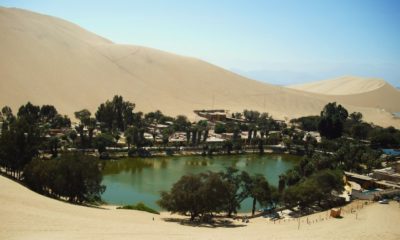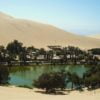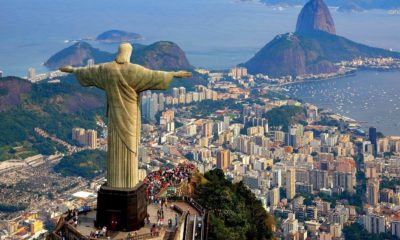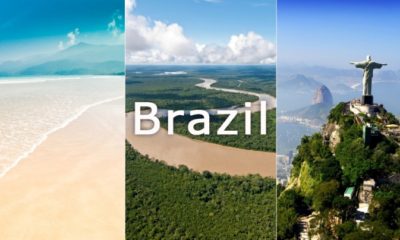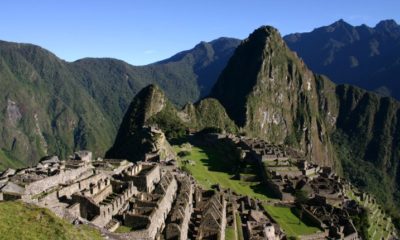South America
Backpacking Argentina Need To Know
Basics
Language:
Capital:
Currency:
| Dial Code:
International Access Code:
Emergency Services Number:
Time Difference:
|
Places To Visit In Argentina
Patagonia is one of the wildest regions in the world, comprised of mountains, deserts and grasslands.
No area of Patagonia is more beautiful and striking than Fitz Roy. Next…
Entry
Citizens of most countries (including all EU countries, The US, Canada, Australia and New Zealand) do not need a visa if your purpose of visit is tourism.
However citizens of countries that charge Argentineans to enter their country (including US, Canadian, and Australian citizens) will have to pay a reciprocity fee, that varies in price per country.
Your passport should be valid for the proposed duration of your stay. No additional period of validity beyond this is required.
You may need to provide evidence of return or onward travel.
For official information visit your home government travel bureau.
Getting Around
Always book taxi’s in advance, rather than hailing from the street, as many are unlicensed. ‘Radio Taxis’ are usually reliable.
The departure of flights from airports in Argentina can be unreliable and susceptible to delays and cancellations.
More detail is to come in this section, but you can read about general advice regardingGetting Around When You Get There
Recommended For Further Information
If you are heading to multiple destinations in South America I highly recommend picking up a copy of Lonely Planet’s; South America On A Shoestring. It provides the most relevant, up-to-date advice on what to see and skip, how to get around, where to stay, and how to optimise your budget for an extended continental trip…

Accommodation
Argentina has a wide variety of hostels and you should never have any problem finding one.
The average price of a hostel is 70-200 Pesos (£5-15) a night. Hotels can also be relatively cheap, but vary in quality.
All hostels in Argentina will provide linen and bathroom facilities. Usually there will be cooking and internet facilities as well as common and laundry rooms.
Read more about Accommodation When You Get There and Living in Hostels
Food And Health
Food hygiene and safety in Argentina is satisfactory, but is not up to Western standards. Use your instincts; if the place looks dirty, don’t eat there; if your food isn’t piping hot, don’t eat it.
Water is generally not safe to drink, so it is best to buy bottled or boil.
Medical facilities are good, but can be expensive. Make sure you have adequate travel health insurance and accessible funds to cover the cost of any medical treatment abroad and repatriation.
Dengue Fever is present in Argentina. Always contact your GP around 8 weeks before your trip to check whether you need any vaccinations or other preventive measures. Visit here for Recommended Vaccinations and read here for more about Travelling Health In General
Weather & Time To Go
Northern Argentina is generally temperate; cold in the winter, hot and humid in the summer. The deserts of Cuyo are extremely hot and dry in the summer; temperatures can reach 50°C. The Andes and Patagonia are cool in the summer and very cold in the winter. Extreme temperature shifts can occur in Patagonia, so pack a variety of clothes and dress in layers.
Communications
Internet and wifi is widespread and is accessible in most hostels and hotels. International calling cards are also cheaply available.
Dangers And Considerations
Crime levels are moderate to high.
Thieves, pickpockets and scam artists commonly operate in tourist areas and on public transport networks and stations. Pickpockets often work in gangs, some distracting you while the others go into your bags, so be alert and try not to get distracted around tourist attractions and cash points.
It is not uncommon for thefts to take place when withdrawing cash from ATMs. ‘Express kidnappings’ occur in Argentina; where victims are normally held while criminals empty their bank accounts with cash cards. Once the ransom is paid the victim is usually quickly released.
Passport thefts are common especially in Buenos Aires and Mendoza. Leave your passport in a hotel safe or security box and keep a photocopy of the details page with you at all times.
Protests are common, you should avoid all public gatherings and mass demonstrations, as they can sometimes turn violent. There have been occasional Falklands-related protests outside the British Embassy and British affiliated businesses in Argentina.
Football is like a religion in Argentina, and there are huge rivalries that sometimes turn violent. Be wary of wearing certain shirts in certain areas and never compare the Argentine national team with, or praise, the Brazilian team.
Possession of even very small quantities of drugs can lead to a lengthy prison sentence.
Many northern provinces suffer from seasonal flash flooding.
Dangers constantly change. Always check with your foreign office (British Foreign Office webpage) or travel advice bureau for the latest information regarding your destinations safety.
Read more about Safety And Security here
Respecting Culture
Avoid talking about the Falkland Islands, especially if you are British. It isn’t wise to draw attention to the fact that you are British, so be conscious of what you are wearing and what you are saying.
Also avoid discussing the Perón years, politics in general and comparing Argentina with South American neighbours, particularly Brazil.
Cheek kissing is common in Argentina when greeting, although usually only applicable once you know someone. Depending on where you are in the country it could be 1, 2 or 3 kisses, but you should not actually kiss the cheeks, only touch cheeks whilst make a kissing sound.




